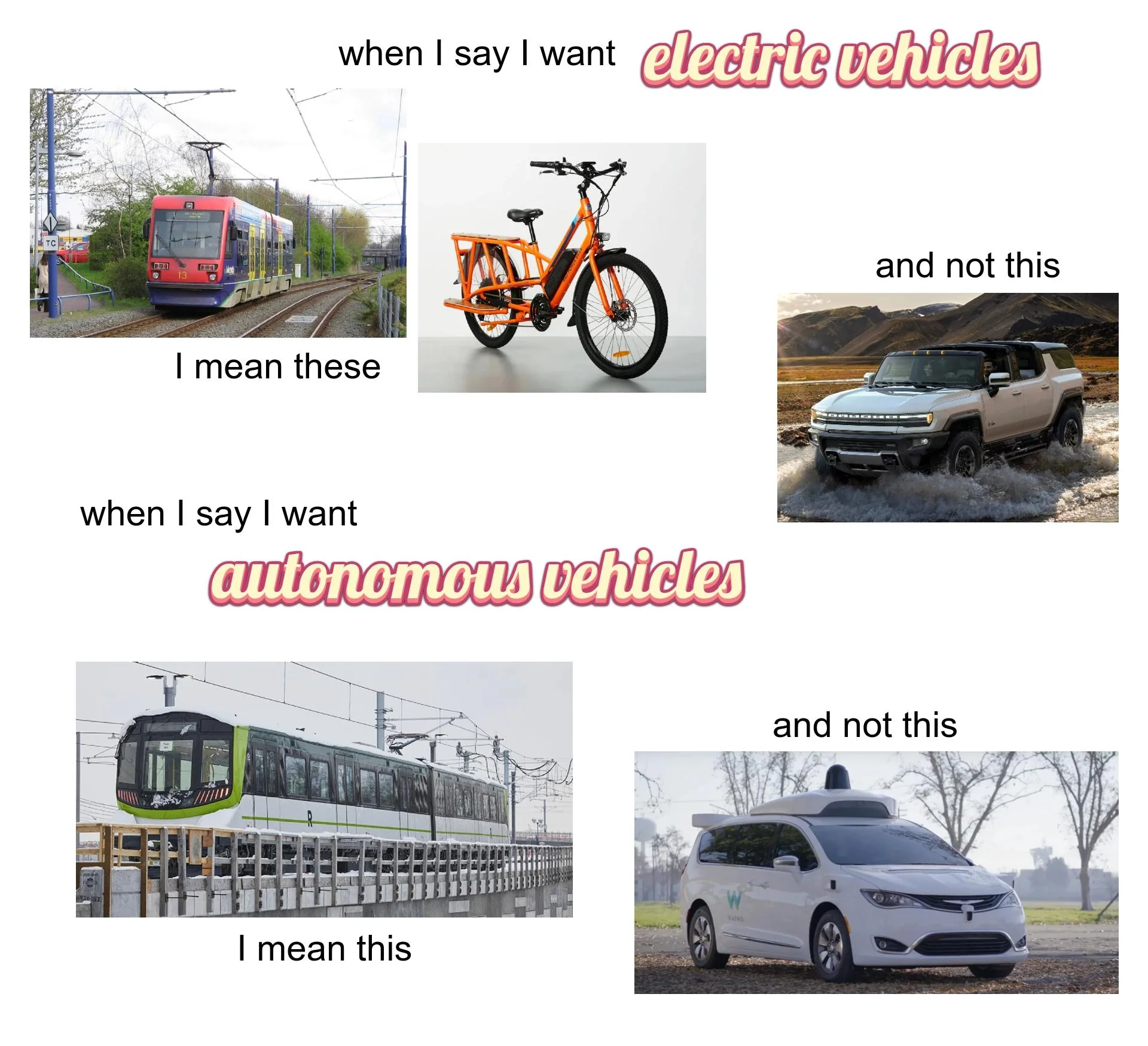view the rest of the comments
Fuck Cars
A place to discuss problems of car centric infrastructure or how it hurts us all. Let's explore the bad world of Cars!
Rules
1. Be Civil
You may not agree on ideas, but please do not be needlessly rude or insulting to other people in this community.
2. No hate speech
Don't discriminate or disparage people on the basis of sex, gender, race, ethnicity, nationality, religion, or sexuality.
3. Don't harass people
Don't follow people you disagree with into multiple threads or into PMs to insult, disparage, or otherwise attack them. And certainly don't doxx any non-public figures.
4. Stay on topic
This community is about cars, their externalities in society, car-dependency, and solutions to these.
5. No reposts
Do not repost content that has already been posted in this community.
Moderator discretion will be used to judge reports with regard to the above rules.
Posting Guidelines
In the absence of a flair system on lemmy yet, let’s try to make it easier to scan through posts by type in here by using tags:
- [meta] for discussions/suggestions about this community itself
- [article] for news articles
- [blog] for any blog-style content
- [video] for video resources
- [academic] for academic studies and sources
- [discussion] for text post questions, rants, and/or discussions
- [meme] for memes
- [image] for any non-meme images
- [misc] for anything that doesn’t fall cleanly into any of the other categories

This is fair I think. In Europe, to be classified as a bicycle, you have power/speed limits and assist requirement. However you get to ride on paths that are designed for bicycle speeds (often adjacent or mixed with pedestrians), don't require any license or training, can go against traffic in many one way streets etc. It makes sense to limit the use of all that stuff to bicycle like vehicles.
However you can have other types of electric bikes, they just aren't bicycles by law any more, which makes sense in my opinion. Want to go scooter/motorcycle speeds and twist throttle and all that stuff, you also need the correct license, insurance and have to drive on the road that is designed for higher speeds.
Granted, one could argue about the specifics of the distinction, but in my opinion there definitely needs to be a distinction in the law and you have to draw the line somewhere.
Yeah, but at least in some legislations, there already is a class of vehicles that is limited to those speeds but isn't classified as a bicycle. In Germany, a Mofa is a motorized bicycle but requires a helmet and a simple license and insurance.
I guess the idea was to include electric bicycles into the bicycle category only with some strict distinctions to avoid blurring the line to already existing motorized two wheelers. And I do like that I can ride my electric bike everywhere I can ride a non assisted bicycle and without any stricter rules for equipment etc.
That would be a huge loss of freedom though, insurance and thus license requirements would raise the barrier to entry massively which is exactly the opposite of what you want. Same with requirements for helmet or permit and it would seriously limit the independence of teenagers. There just isn't a separate path away from car traffic everywhere.
It makes sense to have requirements on maximum size, weight and speed to go in the bike lane. But having rules about the design or operation of the vehicle is just unnecessary bureaucracy. In the Netherlands you can't even ride an electric skateboard.
Actually, it is probably just to fit in with existing legislation. A motorized vehicle with a top speed of 25 km/h in Germany already exists (Mofa), you need a simple license and wear a helmet. And you can't use cycle lanes etc. So to make electric bicycles distinct from that category, they needed to add some differences.